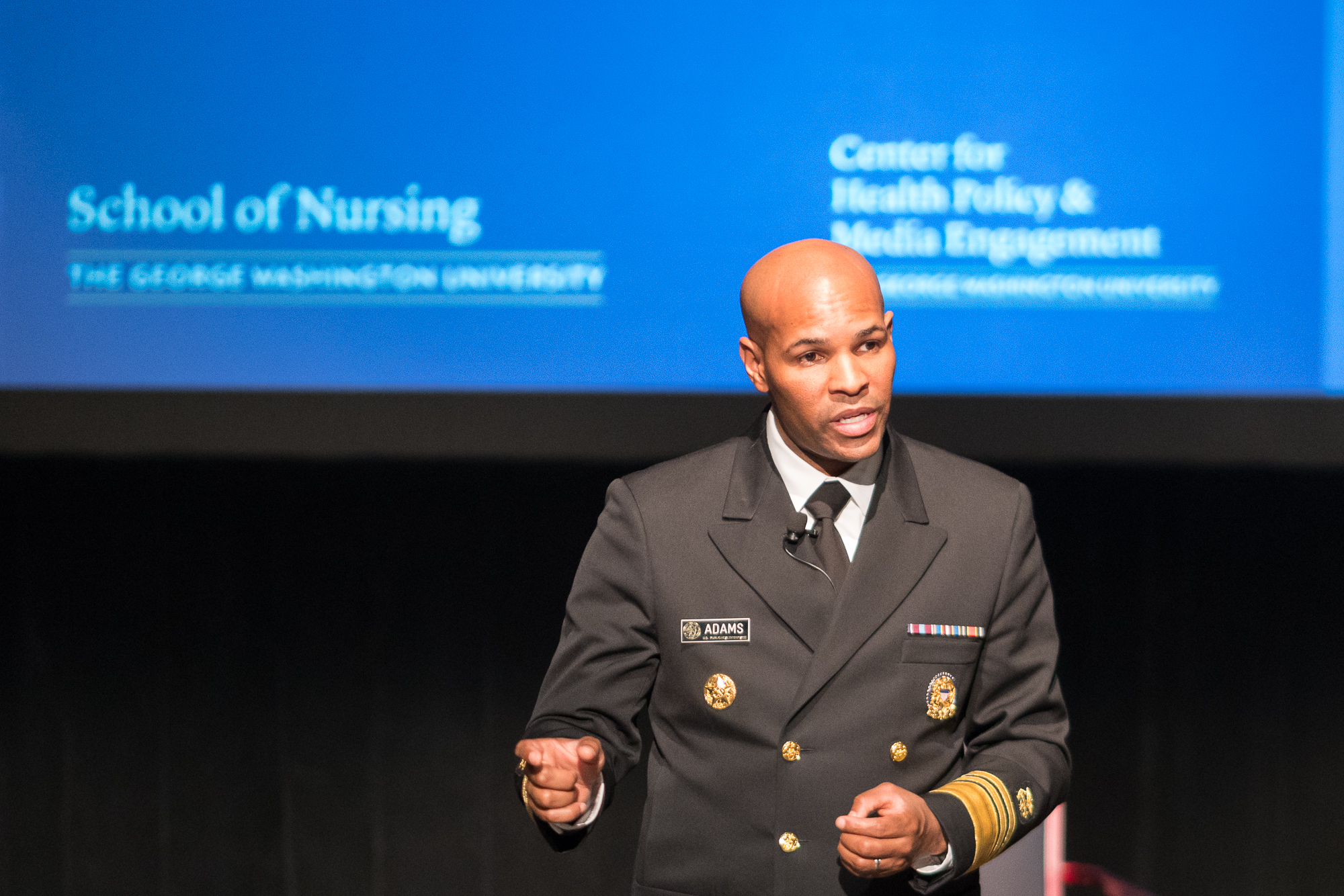Health care providers, students and educators filled the Betts Theater on GW’s Washington, D.C. campus Monday to hear the U.S. surgeon general, Vice Admiral Jerome M. Adams discuss the nation’s opioid epidemic.
In the face of a substance abuse problem that killed almost 48,000 people in 2017, Dr. Adams is focused on building partnerships between health care providers, the private sector, law enforcement and policymakers.
“None of us can do it alone,” he said of treating those with disorders and preventing future abuse.
Dr. Adams identified stigma as the number one killer during his talk hosted by GW Nursing as part of its Center for Health Policy and Media Engagement Health Policy Leadership Lecture Series.
As members of the most-trusted profession, nurses can help alleviate that stigma and encourage patients seek recovery; “there is nothing more powerful than a nurse armed with the correct information,” Dr. Adams said.
Mental health, opioid abuse and obesity are just a few of the stigmatized health issues; the stigma keeps people in the shadow and prevents them from getting help, Dr. Adams said.
“Addiction is a chronic disease, not a moral failing,” he said. “We have evidence based treatment that works … We have to let all of America know that recovery is possible,” Dr. Adams said.
To help those already battling a substance abuse disorder, the science must be represented before policies are instituted, Dr. Adams said.
Dr. Adams called on students in the audience to be game-changers and disrupters. He gave them a brief demonstration on administering Naloxone, which is used to temporarily reverse the effects of an opioid overdose and encouraged everyone to spend 45 minutes familiarizing themselves with the issue by reading The Surgeon General’s Spotlight on Opioids.
“We need you all to be the innovators … Health professionals underestimate their influence, underestimate their voice in the community,” he said.
GW Nursing students in attendance appreciated the Surgeon General’s approach to this modern epidemic.
“I really appreciated that he didn't make the case for a silver bullet solution and that he emphasized that this has to be super interdisciplinary,” said Sarah Gold, a current BSN student.
Ms. Gold and several of her classmates attended the lecture while on a break from their clinical rotation at GW Hospital.
“Even though clinical experience is really important, it’s also good to step away and get the bigger picture,” said fellow student Pamela Estes, also a BSN student.
Learn more by downloading the Surgeon Genera's digital postcard on opioids.


